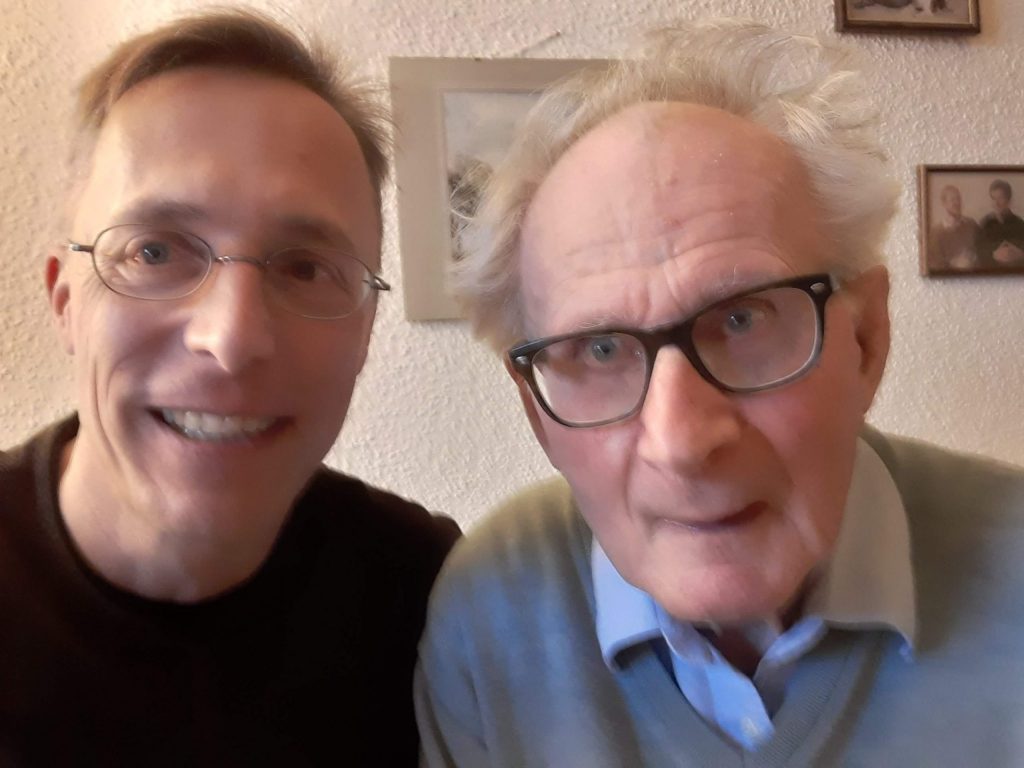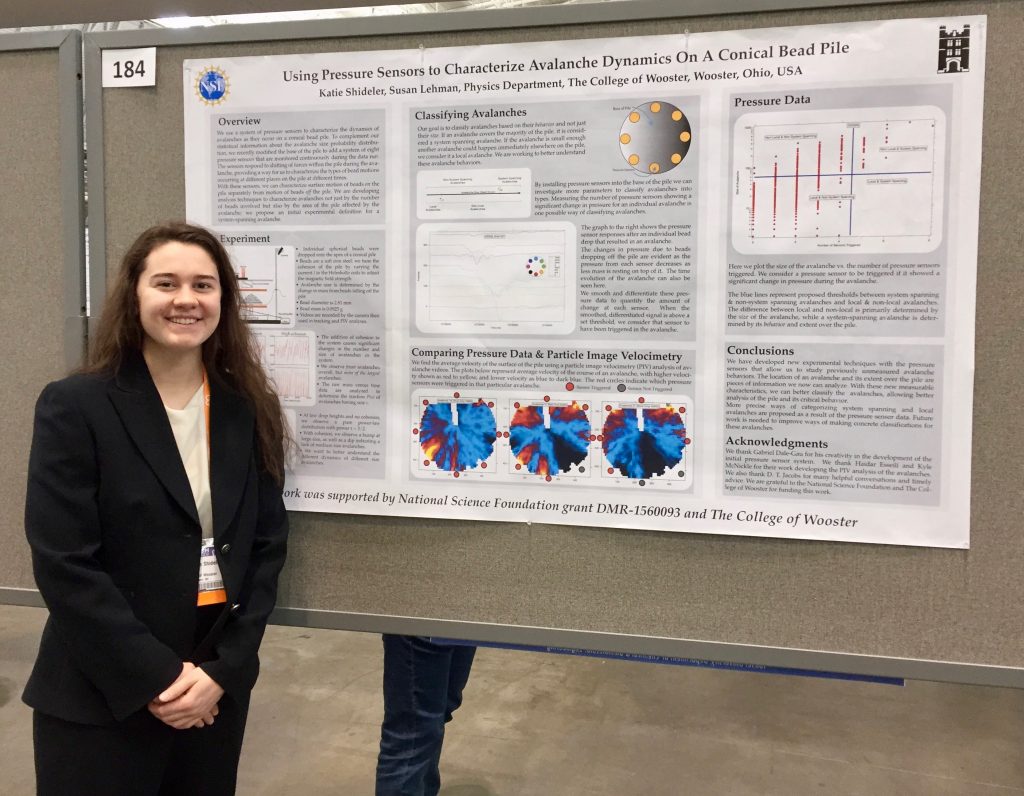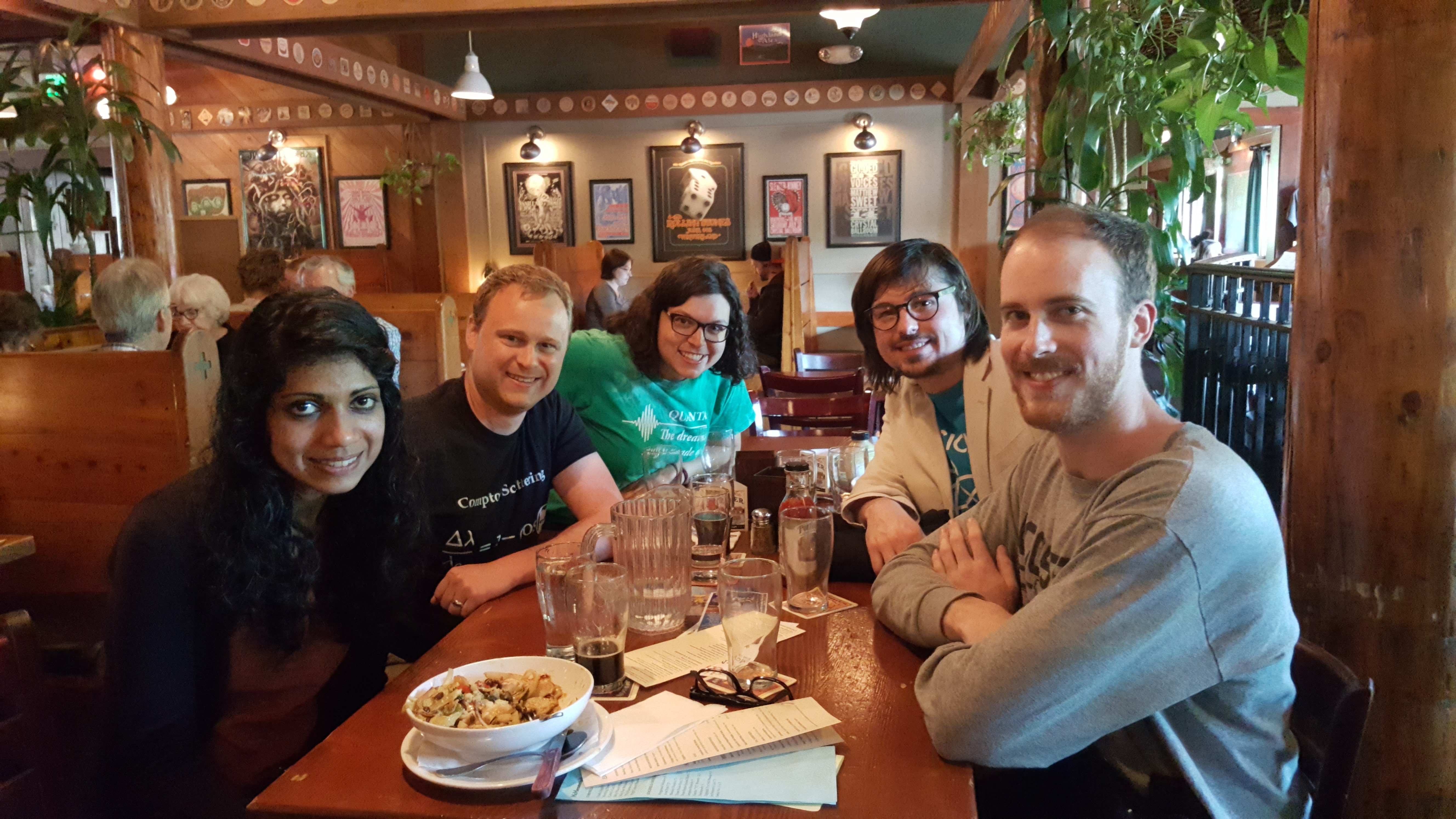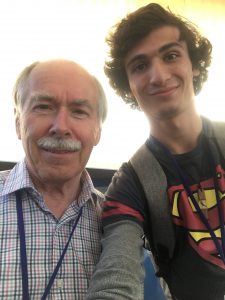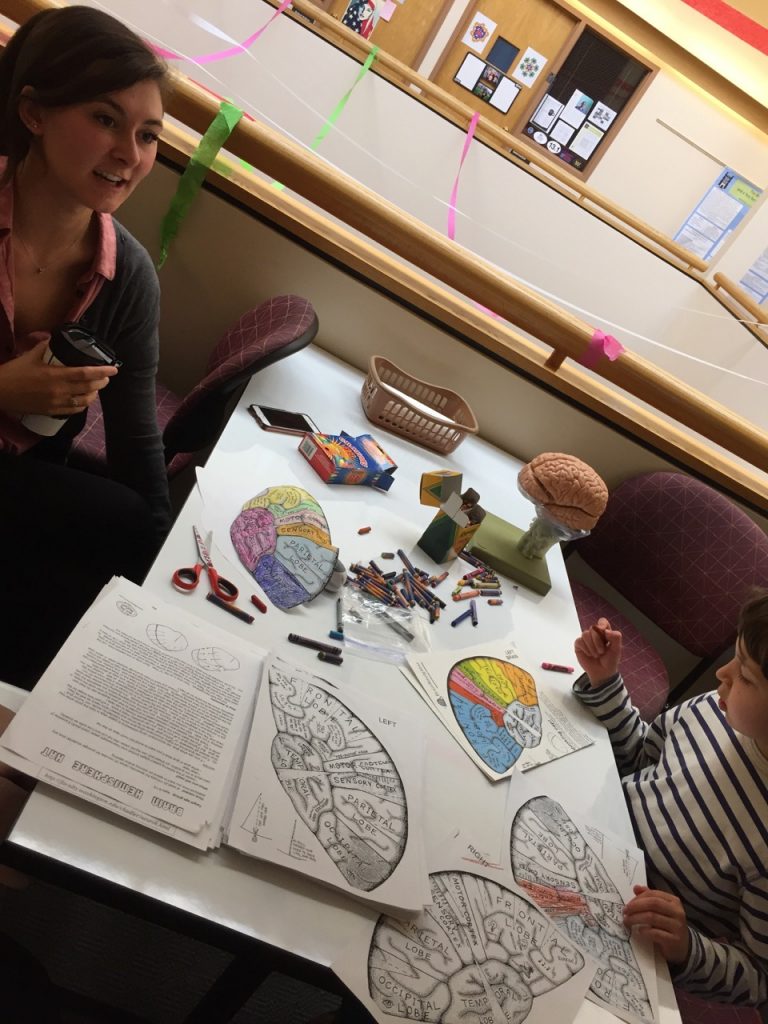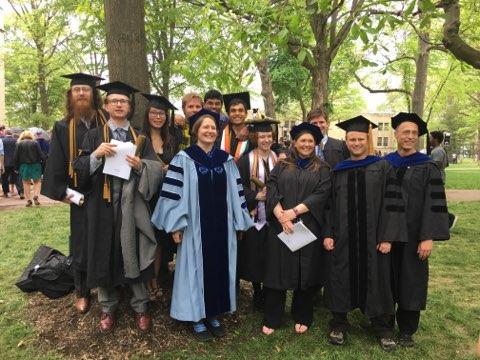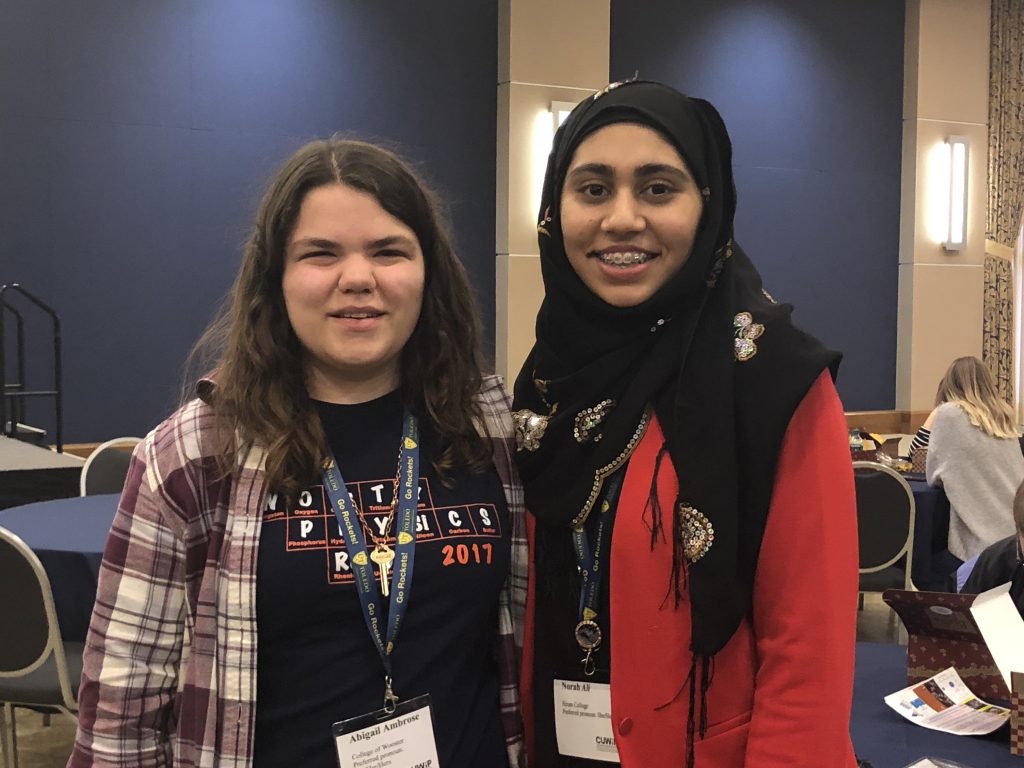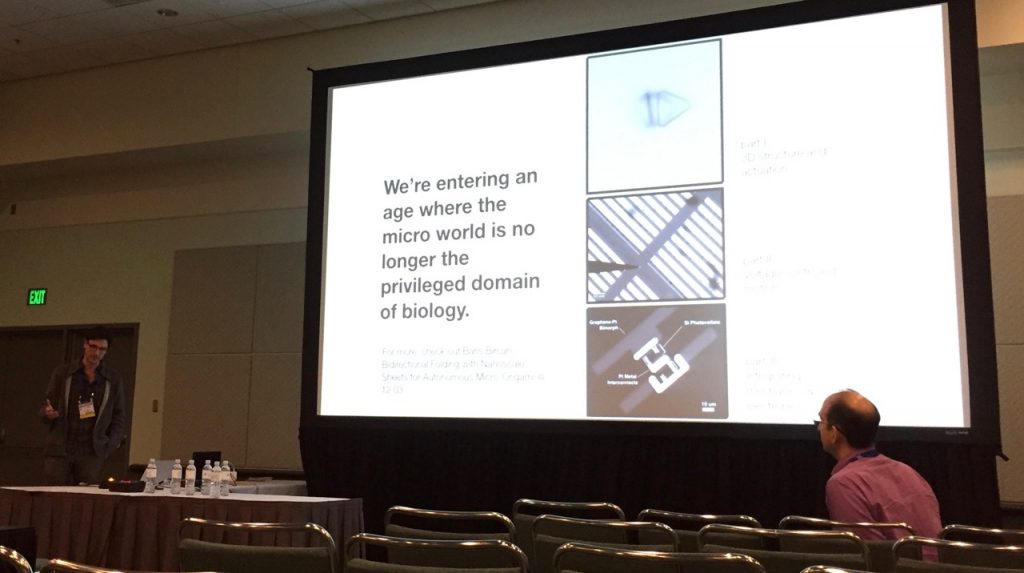Physics helps cure “chaos blindness”
Teaching physics to neural networks removes 'chaos blindness' Researchers from North Carolina State University have discovered that teaching physics to neural networks enables those networks to better adapt to chaos within their environment. The work has implications for improved artificial intelligence (AI) applications ranging from medical diagnostics to automated drone…
Read More
Meeting 100+ years of experience in nonlinear dynamics
I met two scientists for my BZ-history project with a combined age of 177 years. It was a great pleasure and honor to talk to them. Meeting with Horst-Dieter Försterling Meeting with Hermann Haken.
Read More
Hiking to conference
Last weekend, I attended a conference in Germany. I used the opportunity during my sabbatical to return to this conference series, which I attended the last time in 2002. The conference takes place in a small village in the Harz, a Mittelgebirge (I didn’t know that this is an English word!) in…
Read More
Senior Abigail Ambrose becomes SPS Associate Zone Councilor
Senior Abigail Ambrose becomes SPS Associate Zone Councilor Abigail Ambrose is a senior physics major at the College of Wooster. From Fall 2018 to Spring 2020 Abigail is serving as the president of the Wooster SPS chapter as well as the Astronomy Club. She is very active in outreach, including writing…
Read More
March Meeting — Guest Blog by Carlos Owusu-Ansah ’21
Carlos in action at his poster, with Andrew Blaikie ’13 and Daniel Blaikie ’19. I thought the March APS meeting was fantastic. It felt great to present our research findings to people who cared about what Dr. Lindner and I were working on at the College. I attended fun talks…
Read More
March Meeting — Guest Blog by Katie Shideler ’21
Having never been to a physics conference, or even to the city of Boston, attending the annual American Physical Society’s March Meeting was all around a new and incredible experience. Being able to present my research to physicists from across the globe was nerve-racking but very insightful to get opinions…
Read More
March Meeting 2019 Boston
I’m currently in Boston for the 2019 March Meeting, which is as exciting, overwhelming, and exhausting as usual! Circling Boston to approach for landing. Keen viewers can see the Boston Commons (just on the far side of the river), the MIT campus (on the near side of the river, toward…
Read More
Wooster in Boston
As mentioned earlier, I’m at the APS March Meeting in Boston this week. There’s so much to say about all the talks that I’ve been to, etc, but in this post I’m just going to tell you about all the amazing Wooster connections! First off, of course, we have five…
Read More
Wooster awarded NSF grant for summer research
Wooster Receives $325,000 Grant from NSF in Support of Summer Research Program WOOSTER, Ohio – The College of Wooster was awarded a grant of $326,132 on Tuesday from the National Science Foundation, extending support to the department of physics’ long-running and successful Research Experience for Undergraduates (REU) site.The three-year grant…
Read More
Wooster physics reunion in Eugene, Oregon!
I recently returned from a refreshing and productive leave at the University of Oregon in Eugene. I received my own Ph D in the field of quantum optics at Oregon, and my leave was a great opportunity to continue work with prior colleagues. However, I am excited to be back…
Read More
silver medal in the 2018 UPC
Wooster team earns a silver medal in the 2018 UPC
Read More
Physics Today news story on Wooster research
Observing geometric phases in the lab New analysis, simulations, and 3D printing expand the scope and appeal of a classical geometric phase. Richard J. Fitzgerald Falling cats and Olympic divers share the ability to twist, spin, and reorient themselves to land on their feet or make minimal splash. To accomplish…
Read More
Standard Model at 50
From Haidar Essili: All I can think of to describe my experience in the Standard model’s 50th anniversary conference is to repeatedly yell the word wow, until I have lost the will to do so. I am at a loss of words, but I will attempt to put my flustered speech in…
Read More
Spring Outreach Events
Spring is a big time for outreach here at Wooster Physics. The Physics Club runs demonstrations for local elementary schools, doing often two outreach visits a week during the spring. (In the fall, we are usually prepping for this flurry of events — sending letters to the schools and doing…
Read More
A look back on 2017-18
Congratulations class of 2018! I’ve attached a few pictures of some of our seniors and professors who gathered for a quick photo on graduation day (pics courtesy of Zane Thornburg). Special congratulations are in order for Avi Vajpeyi (far left in the second photo), who was selected to be one…
Read More
CUWiP 2018
Well, we’re so busy doing things here at Wooster Physics that we haven’t kept up the blogging about all our exciting activities. Case in point — CUWiP 2018! For the last several years, the American Physical Society has been hosting Conferences for Undergraduate Women in Physics (CUWiP). These are regional conferences…
Read More
Justine Walker’s senior thesis is a highlight of the world’s largest physics meeting
Scenes from the 2018 APS March Meeting
Read More
March Meeting 2018 – Days 2 to 4!
The March Meeting is always so exciting — there is so much information here! Graphene origami and micron-sized laser controlled robots at Marc Miskin’s talk on Tuesday morning. SO COOL! On Tuesday morning, I went to an outstanding session on Atomic Origami. There is some truly amazing work out there…
Read More
March Meeting 2018 – Day 1
I’m currently in Los Angeles for the American Physical Society March Meeting — the largest gathering of physicists in the world. This year there are almost 11,000 attendees, and more than 55 simultaneous sessions to choose from! The moon setting over downtown LA as the sun rises There are physicists…
Read More
Student blog reports from their Junior Independent Study self-designed projects
This spring, each Wooster Junior physics major undertook a six-week scientific investigation of their own design, as a part of our junior independent study course. Watching their projects come to fruition over the course of the semester was a very rewarding experience for me, and I am happy to announce…
Read More

